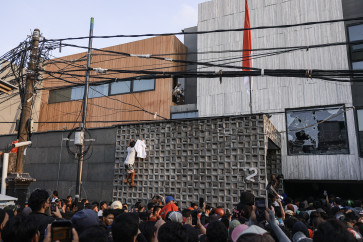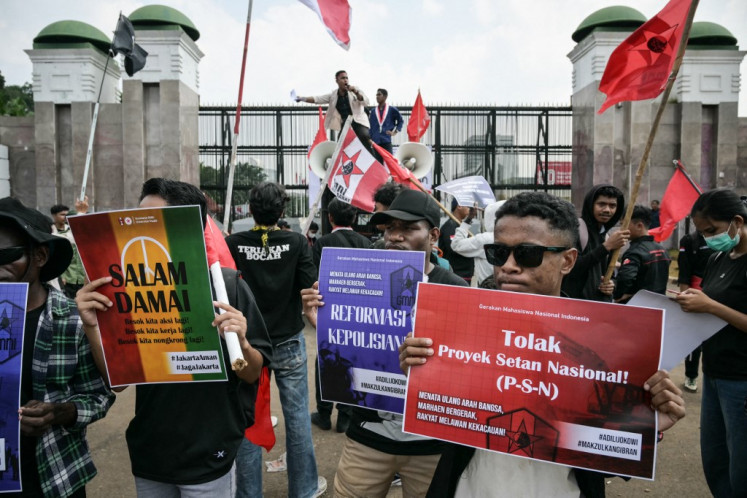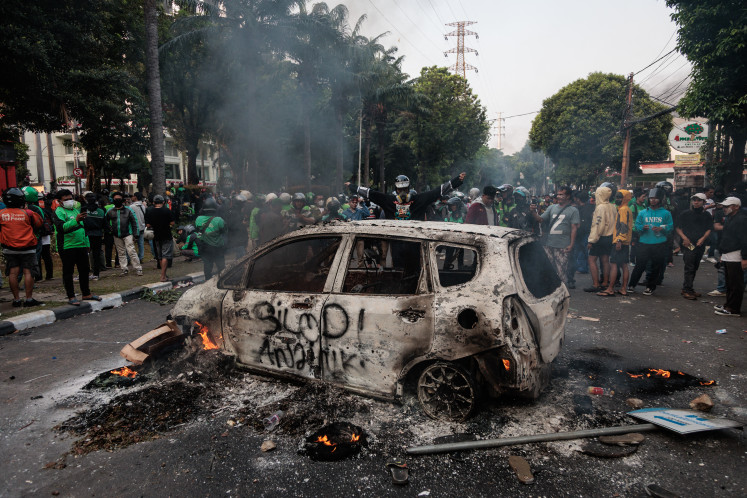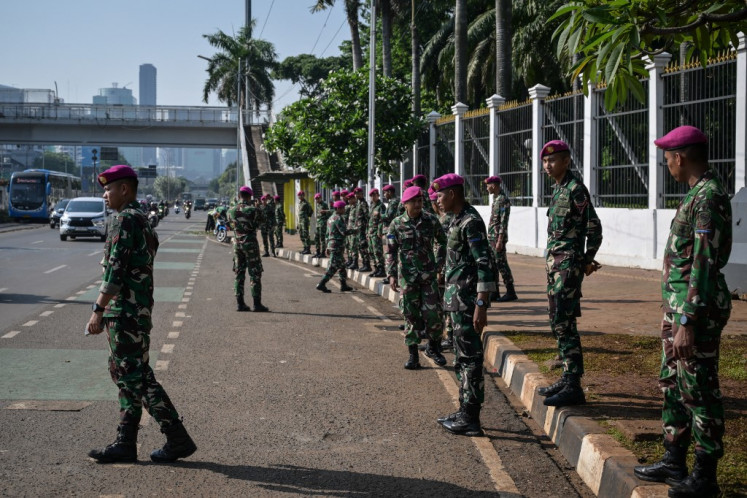Popular Reads
Top Results
Can't find what you're looking for?
View all search resultsPopular Reads
Top Results
Can't find what you're looking for?
View all search resultsCheck rear view mirror, but keep the march to democracy
Egypt, Tunisia and other Arab countries currently making the transition to democracy after decades of authoritarian rule should heed the advice given by any decent driving instructor: Check your rear view mirror from time to time, but don’t ever lose concentration on what’s coming ahead
Change text size
Gift Premium Articles
to Anyone
E
gypt, Tunisia and other Arab countries currently making the transition to democracy after decades of authoritarian rule should heed the advice given by any decent driving instructor: Check your rear view mirror from time to time, but don’t ever lose concentration on what’s coming ahead.
Dealing with the ugly past is certainly important, but not as important as building for what is potentially a much brighter future under a democratic rule.
Both efforts will consume much time, energy and resources -- and there will be a lot of frustrations – and they may have to compromise and let go of the past.
They would certainly be wrong to squander the future for the sake of serving justice to the deposed tyrant and members of his close inner circle for the damage they caused the nation.
This is a tough call that Egypt and Tunisia will have to make at some stage during their march toward democracy. They will learn that indulging too much with the past can seriously jeopardize their efforts
to deal with the huge challenges of the present and their uncertain future.
They must fix the economy, and provide basic social services for their people. They must build the necessary political institutions, and probably rewrite the constitution, to pave the way for democratic elections that give legitimacy to their government. They must deal with the pervasive culture of corruption and they must facilitate development.
Since they are embracing democracy, they will find themselves constantly engaging in heated debates in each of these issues. Decision making will be a far slower and cumbersome process.
The current provisional governments in Egypt and Tunisia are already pressing ahead with plans to prosecute their deposed tyrants, Hosni Mubarak and Zine El Abidine Ben Ali, to account for misdeeds that could include anything from rampant violations of human rights to corruption.
Going by the sentiments in the Arab streets, their prosecution could easily turn into public spectacles and be used to exact revenge rather than uphold justice.
Next, they will be going after the wealth that the former tyrants, their relatives and friends plundered during their rule.
If the Indonesian experience after its uprising in 1998 is anything to go by, Egypt and Tunisia will be mistaken to think that dealing with the definite past is easier than dealing with the blurry future.
Indonesia was confronted with this dilemma in the early years after the student-led people power movement that ended three decades of Soeharto dictatorship in 1998. Indonesia probably did just enough in trying to deal with the past before it gave up and focused on what lay ahead.
Soeharto was never brought to trial, his henchmen in the military who were responsible for many atrocities escaped with impunity, and the state never recovered a cent of the wealth his relatives and cronies amassed during the three decades of his rule.
Many Soeharto loyalists remain in power, some after turning their backs on him, but many others continue to support him. Golkar, his political machine, has remained in the top two parties in all the three general elections since 1999.
Soeharto never left Indonesia. He appeared in court once to convince judges he was too mentally ill to understand the charges. Soeharto won the battle and was largely left alone in his reclusive house in Menteng, Central Jakarta, until he died in 2008.
Soeharto lost a historic opportunity to come clean by not facing up to the charges in court. President Abdurrahman Wahid in 2000 proposed that if Soeharto agreed to appear in court, he would issue an amnesty the day after the court found him guilty.
The nation would have been more forgiving and even recognized his place in history if he had taken up the offer. Instead, he died in public disgrace. It was Soeharto’s loss, but Indonesia has moved on without him.
It was the same story with the billions of rupiah in state wealth plundered by his children and cronies through massive corruption that brought Indonesia to the brink of economic collapse in 1998. His six children who controlled large and diversified conglomerates stayed put in Indonesia, keeping a low profile as they continued to control their businesses.
There were some talks about recovering assets from them, but in the end the government decided, wisely in retrospect, that it wasn’t worth the effort and that more attention should be given instead to creating new wealth for the economy.
While Soeharto, his children and his henchmen escaped justice, the new Indonesia had, at the very least, defused any threat of them making a comeback to do more harm.
Once out of power, Soeharto was rapidly aging and his children had been cut off from the business privileges they once enjoyed. The military went through massive reforms and is now effectively under civilian control.
Going back to the analogy of checking the rear view mirror, Indonesia did enough checking to make sure its past remained in the past, and that those who had caused so much destruction to the nation would no longer catch up and return to do more damage.
Thirteen years after the uprising, Indonesia has come a long way to become the democracy it is today — a democracy that is delivering the economic goods as well. While it still has some way to go, the country reached this point by focusing mainly on its present and future challenges.
Egypt and Tunisia have bright futures ahead of them. They too should not let the past bog them down or prevent them from pursuing their more important agenda.
The writer is senior editor of The Jakarta Post and a visiting fellow at the East West Center office in Washington DC.










